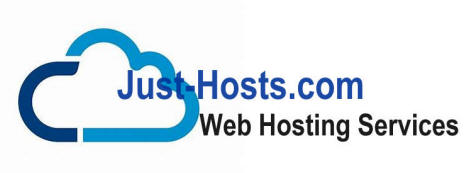Dedicated Web Hosting Servers Explained
When we talk about hosting servers, there are 3 principal types - shared website hosting web servers, VPS (virtual private web servers) and dedicated web hosting servers. Shared web servers accommodate lots of clients and therefore the resources per account are limited, virtual private server accounts offer more configuration autonomy, but also affect other virtual private hosting servers on the hardware node if used imprudently, and dedicated servers offer you the possibility to do everything you choose without messing with anyone else.
Why would you require a dedicated web hosting server?
16 GB DDR4 RAM
2x240 GB SSD Hard Drives
8 GB DDR3 RAM
2x480 GB SSD Hard Drives
Dedicated servers are typically much more expensive than shared web servers or virtual private hosting servers. Why would anyone, then, want to use them? The reply is pretty simple. If your corporation has a heavy resource-absorbing website, or just has very explicit server architecture requirements, the most appropriate choice is a dedicated server. For someone who is ready to invest in safety and dependability, the greater price is of no importance. You are granted full server root access and can use 100 percent of the dedicated hosting web server's system resources without anyone else availing of these resources and intervening with your online portals.
Hardware specs
Most shared web hosting firms, incl. us at Just-Hosts, offer several hardware configurations you can pick from in accordance with your demands. The hardware configurations include different varieties of microprocessors, a different number of cores, different RAM memory and server hard disk drive sizes and different traffic allowances. You can pick a hosting CP, which is a convenient software tool if you wish to use the dedicated hosting server for website hosting purposes only and choose not to use an SSH console for all the changes you will be making. We offer 3 sorts of web hosting Control Panel software - Hepsia, DirectAdmin and cPanel.
The web hosting CP of your choice
If you are a self-reliant Linux user (our web servers are powered by Linux or other Unix-based OSs), you could manage your dedicated server via an SSH tunnel exclusively. That, though, could be inconvenient, particularly if you choose to grant root-level access to somebody else who has less technical experience than yourself. This is why having web hosting Control Panel software pre-installed is a smart idea. The Hepsia hosting CP graphical user interface that we offer does not offer root privileges and is mainly suitable for somebody who maintains lots of websites that absorb plenty of resources, but wants to administer the online portals, databases and email boxes via an intuitive web hosting Control Panel. The DirectAdmin and cPanel web hosting CPs, on the other hand, grant full root-level access and offer 3 levels of access - root, reseller and user. If you intend to resell web hosting accounts rather than using the dedicated web hosting server just for yourself, you should pick one of these two.
Server monitoring and backup procedures
Last but not least, there is the matter of monitoring the dedicated web hosting server and of backing it up. In the event of a problem with your web server, like a non-responsive Apache or an outage, it is advisable to have some kind of monitoring system enabled. Here at Just-Hosts the system administrators monitor all dedicated servers for ping timeouts, and, if you order a Managed Services upgrade, they monitor the individual services on the dedicated web hosting server as well. Backups are also an additional option - the hosting supplier offers you data backups on our own backup web servers. You could pick a kind of RAID that would allow you to have the same data on 2 server hard drives as a protective measure in the event of a disk drive failure, or in case someone whom you have ranted full root access deletes something by mistake.
